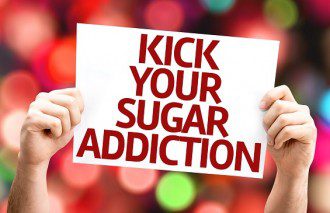

| Online: | |
| Visits: | |
| Stories: |

| Story Views | |
| Now: | |
| Last Hour: | |
| Last 24 Hours: | |
| Total: | |
Sugar is as Addictive as Cocaine – Here’s How You Can Kick the Habit
Follow TIS on Twitter: @Truth_is_Scary & Like TIS of Facebook- facebook.com/TruthisScary

Christina Lavers/Wake Up World
“Some of the largest companies are now using brain scans to study how we react neurologically to certain foods, especially to sugar. They’ve discovered that the brain lights up for sugar the same way it does for cocaine.” ~ Michael Moss, Salt Sugar Fat: How the Food Giants Hooked Us
To our ancestors, sugar was a precious commodity. Infrequently found in high concentrations in a typical ancestral diet, substances like honey and ripe fruit were seasonal treats to be savoured, as a means to gain energy and build up fat stores before winter. Today our brains are still wired to want to maximise our sugar intake, but because it is now so processed, cheap and abundant, this once beneficial substance is wreaking havoc with our health. With the average daily sugar intake in the US equalling 32 teaspoons, most people eat more sugar in a week than our ancestors would have consumed in a lifetime.
Until very recently sugar was seen as a harmless additive that made food more fun and appealing. The idea ‘a spoonful of sugar helps the medicine go down’ was a popular notion, and products aimed at children were crammed with sugar in order to make them more appetizing to young palates. Children growing up in the seventies would commonly start the morning with a bowl of cereal with an already high sugar content, and then be handed the sugar bowl so that they could sprinkle even more on top. For many, this flow of refined sugar continued throughout the day in the form of candy, sweet drinks and hidden within most processed foods.
Now that these kids raised on copious amounts of sugar are nearing middle age, we are witnessing a massive surge in serious chronic health issues that is leading experts to re-think sugar’s benign reputation. With a slew of recent studies linking sugar to obesity, type-2 diabetes, heart disease, cancer, and even psychological disturbances, our perception of sugar is finally shifting from a tasty and fun additive, to a toxic and even addictive chemical.
Sugar Addiction and the Brain
A growing body of research has demonstrated that sugar interferes with the brain’s reward processing centre in a similar way that narcotics and recreational drugs do, with sugar addicts suffering uncomfortable withdrawal symptoms when they attempt to limit their intake. In fact, one addiction study showed that 93% of animal subjects regularly chose sugar water over cocaine.
This emerging view of sugar as an addictive and dangerous substance has led researchers to investigate ways to help people curb their sugar intake in the hopes of reversing this destructive trend. Recently, Queensland University of Technology (QUT) in Australia looked at the possibility of using drugs commonly used to treat nicotine addiction as a means to assist people to improve their health by reducing their cravings for sugar. This study, published in by international research journal PLOS ONE, found that smoking cessation drugs could also be used to treat sugar addiction in animals, clearly highlighting the similarities between sugar- and narcotic-addiction in the brain.
“The latest World Health Organisation figures tell us 1.9 billion people worldwide are overweight, with 600 million considered obese,” said Neuroscientist Professor Selena Bartlett from QUT’s Institute of Health and Biomedical Innovation.
“Excess sugar consumption has been proven to contribute directly to weight gain. It has also been shown to repeatedly elevate dopamine levels which control the brain’s reward and pleasure centres in a way that is similar to many drugs of abuse including tobacco, cocaine and morphine. After long-term consumption, this leads to the opposite, a reduction in dopamine levels. This leads to higher consumption of sugar to get the same level of reward.
“We have also found that… animals that maintain high sugar consumption… into adulthood may also face neurological and psychiatric consequences affecting mood and motivation.
“Our study found that… drugs like varenicline, a prescription medication trading as Champix which treats nicotine addiction (*), can work the same way when it comes to sugar cravings.”
PhD researcher Masroor Shariff pointed out that the study also put artificial sweeteners under scrutiny.
Source: http://truthisscary.com/2016/04/sugar-is-as-addictive-as-cocaine-heres-how-you-can-kick-the-habit/




Remember folks, there’s nothing ‘natural’ about refined sugar!
It is made in factories by humans.
And when you ingest it, it begins to kill you realll slowww…
Or sometimes faster.